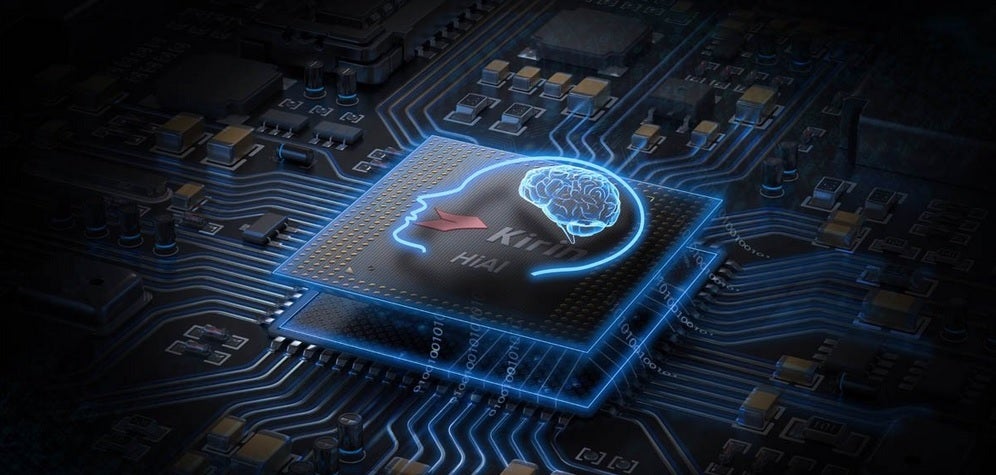U.S. lawmakers want tougher punishment against China's SMIC foundry

Huawei's in-house HiSilicon unit designed the powerful 5nm Kirin 9000 chipset that powers the company's top flagship phone (the Mate 40 series) and the 5G base station used for its 5G networking gear. Unfortunately, the U.S. Commerce Department changed an export rule that blocks any foundry from shipping to Huawei any chip made using U.S. sourced technology. As a result, Huawei hasn't been able to obtain enough cutting-edge components. For example, it had ordered 15 million units of its 5nm Kirin 9000 SoCs, but only 8.8 million of them were delivered to Huawei.
U.S. Lawmakers want to tighten new restrictions against China's SMIC foundry
Huawei turned to China's largest foundry SMIC, but with its cutting edge technology stuck at 14nm compared to the 5nm process used by TSMC, this was not a feasible plan. And to make matters worse,last week the Chinese foundry was added to the U.S. Commerce Department's Entity List. This means that SMIC cannot obtain parts from its U.S. supply chain without obtaining a license. Two U.S. lawmakers say that the new rules against SMIC need to be tightened up even more in order to to block SMIC from getting its hands on advanced U.S. technology. Reuters says that U.S. Senator Marco Rubio (R-Fl.) and Representative Michael McCaul (R-Tx.) want the Entity List punishment to be rewritten to make it even more strict against SMIC. Huawei's placement on the Entity List in May of 2019 is what keeps the Chinese manufacturer from obtaining components from its U.S. supply chain including Google.

Foundries using American tech cannot ship Huawei's own cutting edge Kirin chips to the Chinese manufacturer"q2q
In a letter, Senator Rubio and Congressman McCaul wrote that the Entity List needs to be stricter and rewritten in order to close "dangerous loopholes that would allow nearly all sales to SMIC to continue without restriction and support the (Chinese Communist Party’s) stated goal of military preeminence." The lawmakers said in their letter that they were concerned that without changes the Entity List rules would be "utterly ineffective in addressing this growing national security threat." Commerce Department Secretary Wilbur Ross said that placing some Chinese firms on the Entity List is a "necessary measure to ensure that China, through its national champion SMIC, is not able to leverage U.S. technologies to enable indigenous advanced technology levels to support its destabilizing military activities."
The lawmakers are worried that the current restrictions imposed on SMIC by the U.S. refer only to technology required to produce chips at the 10nm node and less. That means that SMIC still has the ability to manufacture some cutting-edge gear. Rubio and McCaul fear that the administration "seems to be allowing SMIC access to nearly all semiconductor manufacturing equipment." Their concern is that the new rules were created "for show and parochial commercial interests at the expense of U.S. national security."
SMIC said that if it were to be placed on a blacklist preventing it from buying equipment from certain suppliers, it would have a very negative effect on its R&D as it plans to develop manufacturing facilities using the 10nm process node and even more advanced nodes. SMIC also said last week that it doesn't believe that being placed on the Entity List will have a major negative effect on its operations and finances short term.
One piece of equipment that SMIC badly needs in order to build advanced chips at 7nm and more advanced is an EUV lithography machine. This expensive equipment allows the foundry to etch the lines on wafers that transistors will be placed on. These lines need to be extremely thin so that enough transistors can be placed inside a chip making them more powerful and energy-efficient. Dutch firm ASML is the leading provider of lithography machines in the world and while providing SMIC with such a machine wouldn't necessarily violate SMIC's Entity List placement, there is still the possibility that ASML does not want to get involved in the current U.S.-China trade war. If SMIC can produce chips using more cutting-edge process nodes, it could lead to a major shift in the global chip market. At the same time it could stop while stopping the U.S. from keeping Huawei from challenging Samsung as the world's top smartphone manufacturer.
Follow us on Google News













Things that are NOT allowed:
To help keep our community safe and free from spam, we apply temporary limits to newly created accounts: